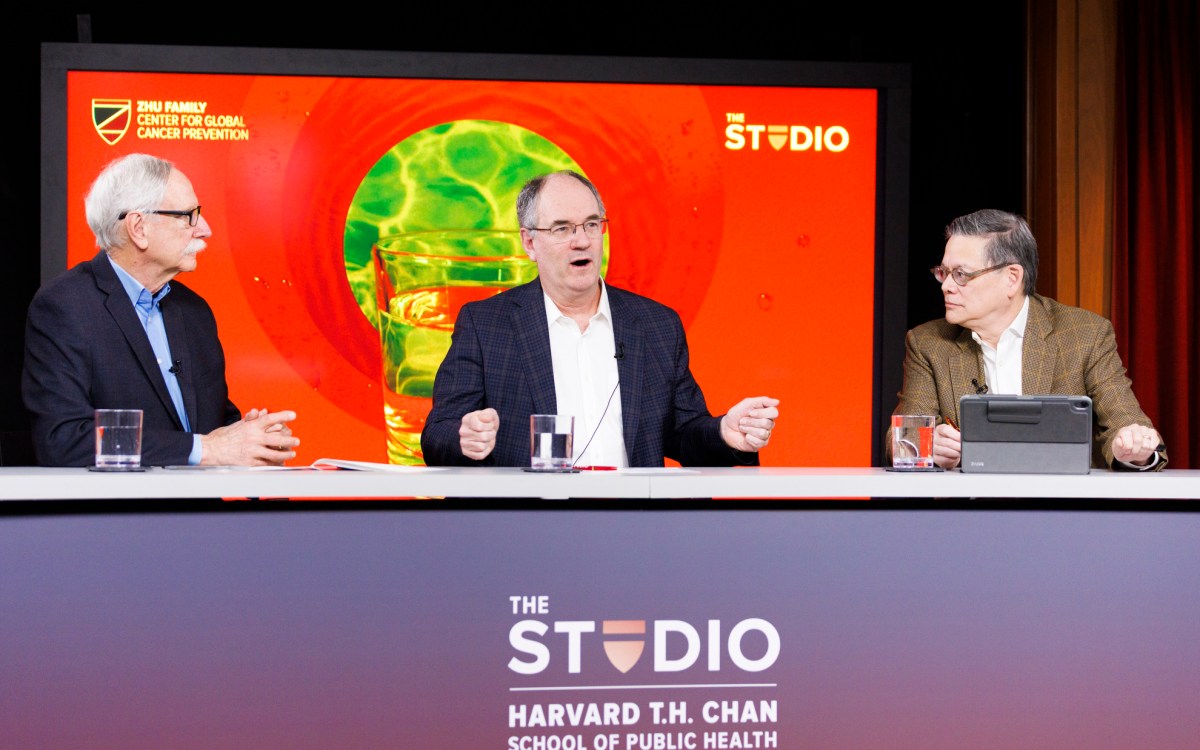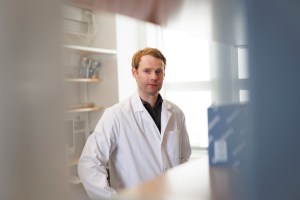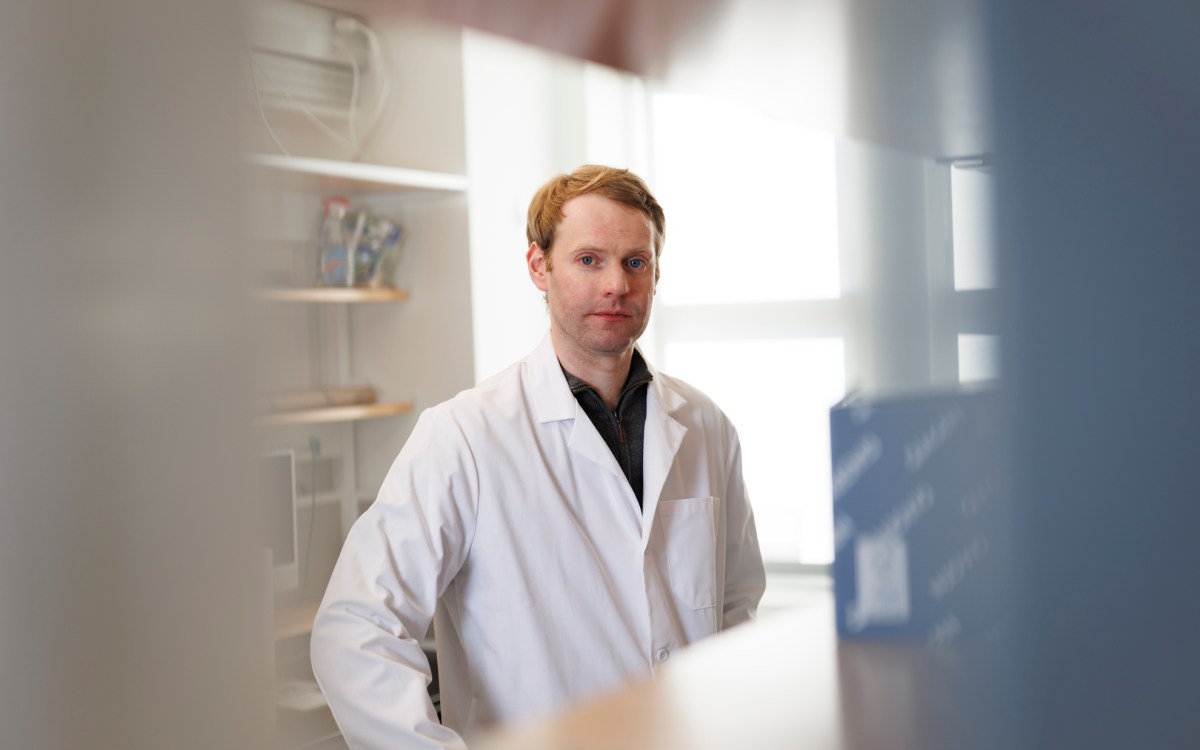Nieman Foundation, Pulitzer Center team up to strengthen global health reporting
The Nieman Foundation for Journalism at Harvard and the Pulitzer Center on Crisis Reporting have joined forces to support international reporting initiatives with a special focus on global health coverage.
The partnership will also bring Pulitzer Center journalists to Harvard University for presentations and discussions on underreported international stories and provide an annual workshop for Nieman Fellows that will explore the Center’s innovative strategies for using multimedia platforms effectively; placing news stories in the media for maximum impact; and employing social media, educational networks and other techniques to engage the public in important global issues.
The new collaboration grows out of the Nieman Foundation’s specialized fellowship in global health reporting, which was launched at Harvard in 2006 and includes a four-month reporting project at the end of the academic year.
The Nieman Global Health Reporting Fellowship is a unique addition to Harvard’s global health related research, education and engagement programs. Harvard is currently the only university in the world that, through this kind of fellowship, includes journalistic inquiry and storytelling in its efforts to comprehensively recognize, study and address global health issues.
“This new venture will benefit not only Nieman Global Health Fellows but many other reporters covering international events and issues,” explains Nieman Foundation curator Bob Giles. “We are grateful for the support of the Pulitzer Center and we are looking forward to working together to help shine a spotlight on topics that are too often neglected by the media today.”
“The Nieman Foundation has for decades been a leading voice for the importance of high-quality reporting,” adds Jon Sawyer, the Pulitzer Center’s executive director. “We are honored to work with our colleagues there as together we explore how to sustain that vision at a time of profound change in the way journalism is produced and consumed.”
Around campus, Nieman Fellows learns from experts in the field and offer journalistic insight and their reporting experience to classroom discussions, projects and conversations. Once they have embarked on their fieldwork projects, the fellows bring insightful, comprehensive global health reporting back to their audiences.
“The global community is devoting more resources to understanding and resolving health issues than we have ever seen,” says Stefanie Friedhoff, special projects manager at the Nieman Foundation, who directs the global health fellowship. “This is a remarkable process of interdepartmental, interdisciplinary, intercultural and international collaboration. As with all democratic activity, journalists are essential in this process as they chronicle what is happening on all levels; and explain to audiences why programs are designed the way they are, how people are affected or why financial commitments matter. Journalists also provide the checks and balances needed to identify unintended consequences, uncover abuses and support the global community in spotting and addressing what is not working as quickly as possible.”
A recent example of reporting on a pressing global health issue that has had an impact is a series by Margie Mason, a 2009 Nieman Global Health Reporting Fellow, and her Associated Press colleague Martha Mendoza called “When Drugs Stop Working.” The two reporters traveled to four continents to report on the alarming growth in drug-resistant diseases and show how drug resistance is a global, not a local threat. Margie Mason’s research at Harvard led her to discover the first U.S. case of extremely drug-resistant tuberculosis in the United States, which became a major element of the series. Mason and Mendoza won a Science in Society Journalism Award for this work.
Other Nieman Global Health Reporting Fellows have focused on topics such as innovative mental health interventions in India, the brain drain of health workers from the developing to the developed world, and the people who participate in AIDS vaccine trials, ranging from a lawyer in San Francisco to a mother of four in Tanzania.
However, due to the many recent changes affecting journalism and international reporting in particular, placing such stories in mainstream media outlets is becoming increasingly difficult.
“It is not just about providing the financial resources journalists need to travel and stay with a project for more than two weeks, which has become impossible for most newsrooms,” says Friedhoff. “Sorting through the many dimensions of global health stories is daunting and finding narratives that make the complexities accessible to the general public, especially when connecting a far-away health crisis with our own lives in the developed world, takes time and training.
“The Nieman program has been able to produce some remarkable examples of global health reporting. The resources available at Harvard and in Boston provide the proverbial ‘world in a nutshell’ when it comes to opportunities to focus on global health, from cutting-edge research to policy debates to implementation. We are looking forward to increasing our reporting output and impact in this new collaboration with the Pulitzer Center, and to learn from the Center’s innovative ways of creating community around a subject of concern, both online and through outreach events.”
The new partnership between Nieman and Pulitzer is reflected in the Fall 2010 issue of Nieman Reports, with articles by Pulitzer Center Executive director Jon Sawyer (“The Sometimes Bumpy Nonprofit Ride Into Digital Foreign Correspondence”) as well as journalists funded by the Pulitzer Center, Kwame Dawes (“Bearing Witness: The Poet as Journalist”), Jason Motlagh (“From War Zones to Life at Home: Serendipity and Partners Matter”), and Fatima Tlisova, a 2009 Nieman Fellow, (“Brutal Censorship: Targeting Russian Journalists”). Nieman Reports is serving as the publishing partner for Tlisova’s reporting about Russian journalists who have fled the country or have been killed.
Based in Washington, D.C., the Pulitzer Center promotes, funds and publishes international reporting projects and has built a reputation as an innovator in keeping global affairs on local radar screens. In collaboration with the Nieman Foundation, the Center’s staff will help Nieman Global Health Fellows with story planning and placement. The fellows will also be included in the Center’s outreach program.
The new partnership is underwritten by a grant from the Pulitzer Center, which will cover the cost of the fieldwork for 2011 Nieman Global Health Fellows Antigone Barton and Helen Branswell as well as for their counterparts in 2012 and 2013.





